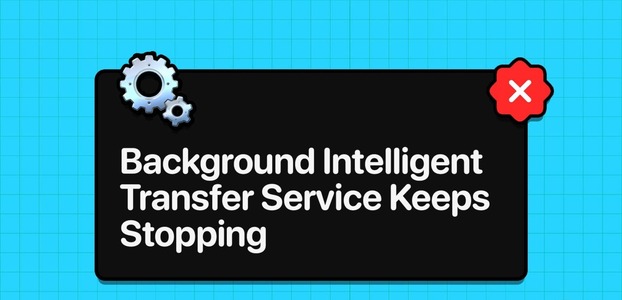The Windows registry is a database of operating system configurations and the applications running on it. Sometimes, you modify the registry, which involves actions such as deleting certain entries. Normally, you can do this without problems, but Some users They report that they get an “Unable to delete all specified values” message when trying to remove some entries from the registry editor.
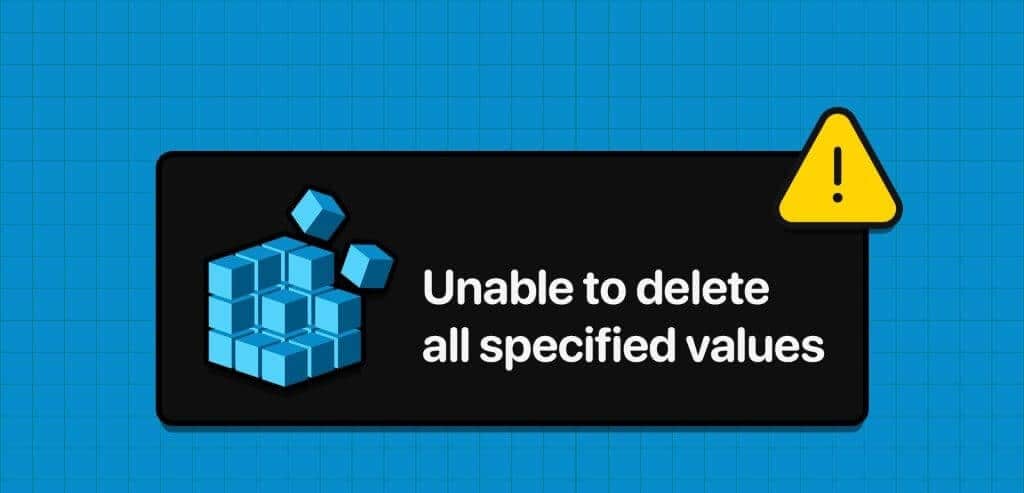
This issue can occur for reasons such as empty values in your registry keys, a corrupted registry, or you don't have the correct permissions. We'll walk you through some practical solutions. However, before diving into them, you need to take Registry backup To avoid losing important data.
1. Log in using the administrator account.
To perform some tasks in your registry, you must be logged in with an administrative account. So, if you can't delete all the specified values in the Registry Editor, you'll need to double-check that you have the correct privileges. First, make sure you're logged in to Windows with an administrator account, then follow the steps below.
Step 1: Click icon Windows Search on the taskbar to open the Start menu and type Regedit.
Step 2: Click "Run as administrator".
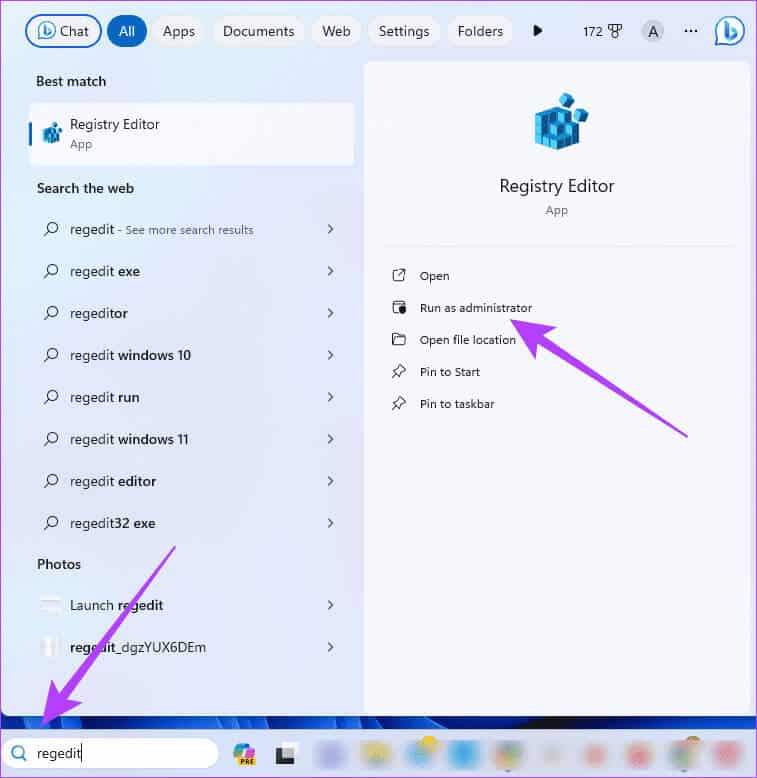
Step 3: Click yes At the User Account Control prompt, and then retry. Delete values.
2. Edit main permissions
When your account lacks the appropriate permissions to change certain values, you can modify its permissions to gain access. You can do this by following the steps below.
Step 1: Press the keyboard shortcut Windows + R To open a dialog box Operation.
Step 2: Type Regedit And press Enter.
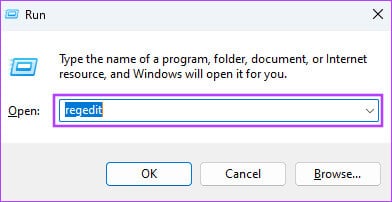
Step 3: Navigate to the key you want to delete, right-click on it, and then click Permissions.
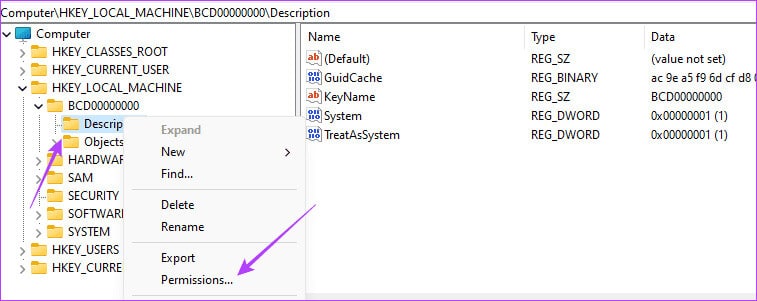
Step 4: In the Permissions section, clear all Deny check boxes, and then click Apply and agree.
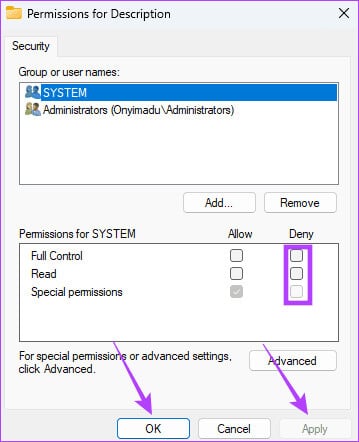
3. Delete registry values using the command prompt.
The Command Prompt allows you to communicate with the Windows operating system using text commands. In addition to many of the operations you can perform with this utility, you can use it to modify or delete specific registry values, as described below.
Step 1: Press the keyboard shortcut Windows + R To open a dialog box Operation.
Step 2: Type cmd And press Ctrl + Shift + Enter Keyboard shortcut to open Command Prompt with administrative privileges.
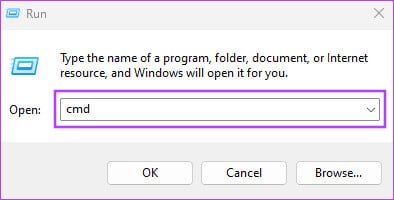
Step 3: Type the script below, replacing registry location with the actual path to the key you want to delete, and then press Enter. This will delete the registry key.
reg delete registry_location /f

Step 4: Follow the prompts you may receive in Command Prompt to complete the process.
4. Delete the values using Microsoft's SYSTERNALS REGDELNULL
When registry keys contain empty characters, deleting them manually can be more difficult. However, using the Systernals RegDelNull tool from Microsoft, you can still delete these problematic values. To follow the steps below, you'll need to have the tool installed on your computer.
Step 1: Get Systernals RegDelNull From the Microsoft website.
Step 2: Right-click on the downloaded file, and then click Extract All, then click the . button Excerpt.
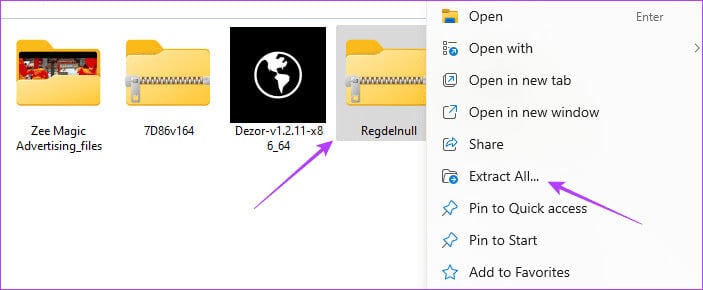
Step 3: Double click RegDelNull.

Step 4: Enter the command below, replacing registry location with the actual path to the values to be deleted, and then click OK. Input.
regdelnull registry_location -s
5. Remove blank characters from the registry key
Using the Systernals RegDelNull tool helps delete keys with null values. However, if you can't delete registry keys, you can also manually add values to keys with null values. Once the null values are changed, deleting them is easy.
Step 1: Press the keyboard shortcut Windows + R Opens the run dialog.
Step 2: Type Regedit And press Enter.

Step 3: Go to the key which you find difficult to delete and double click on it.
Step 4: Change the value data to 1 and click Next. “OK”, Then try deleting the key again.
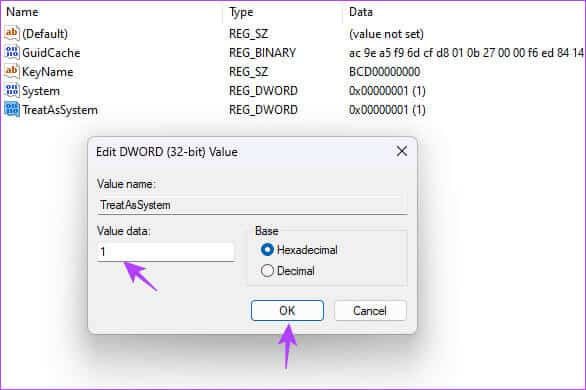
6. Boot into safe mode to delete the value
If Windows is using the specific value you're trying to delete, you won't be able to delete it. To ensure that any application or operating system no longer uses it,Boot your computer into safe modeWhen you're in Safe Mode, your computer starts up only and uses only Microsoft's set of drivers, services, and programs. Then try deleting the registry keys or values again.
7. Repair Windows installation
Another reason you may not be able to delete certain keys is if your Windows installation is damaged. You'll first need to repair your installation before attempting to delete it. You can repair your system installation by running some command-line utilities, as described below.
Step 1: Press the keyboard shortcut Windows + R Opens the run dialog.
Step 2: Type cmd And press Ctrl + Shift + Enter Keyboard shortcut to open a window Command Prompt With administrative privileges.

Step 3: Type the script below and press Enter:
dism / online / cleanup-image / restorehealth
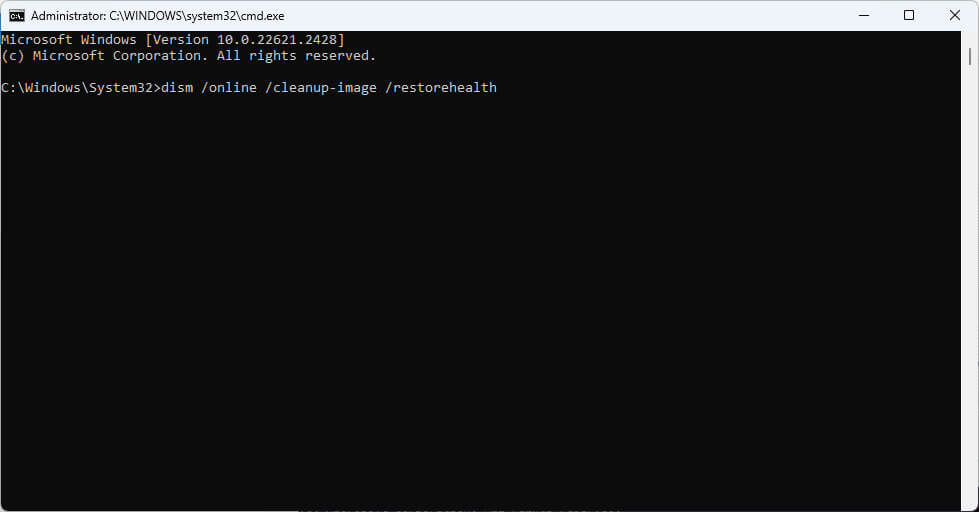
Step 4: Next, type the following command to run the System File Checker scan and press OK. Enter:
sfc / scannow
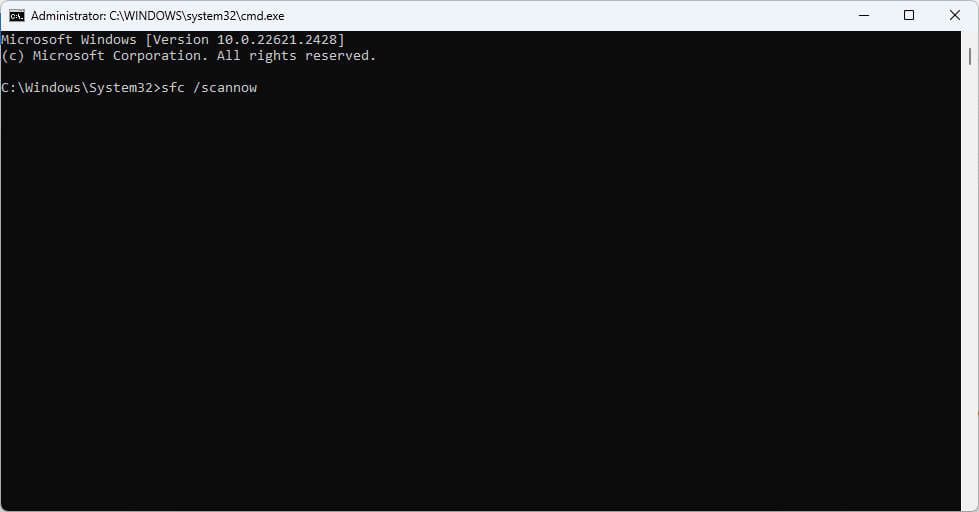
Get full control over the registry
In most cases, you encounter an error while deleting keys because you don't have administrative rights. However, the solutions explored in this guide can help you avoid this and other problems.



